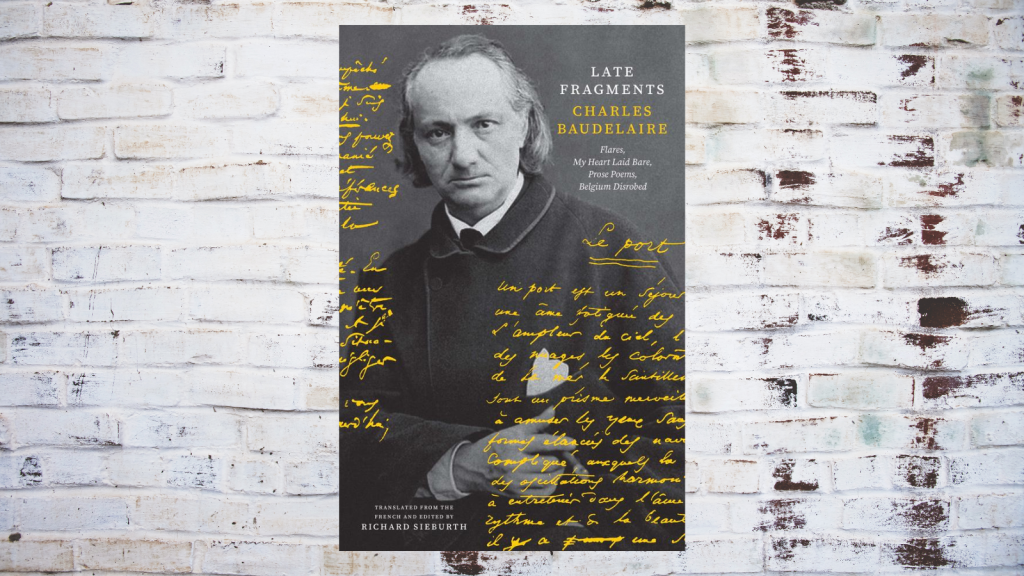A Poetics of Incompletion: Baudelaire’s Late Fragments
“What the mind creates is more alive than matter” – Charles Baudelaire, Flares This isolated phrase, the third entry in Charles Baudelaire’s aphoristic, incomplete collection Flares, takes on a new meaning in the context of a reader’s approach to this new translation of and introduction to Baudelaire’s late work undertaken by Richard Sieburth and forthcoming from Yale […]
A Poetics of Incompletion: Baudelaire’s Late Fragments Read More »
“What the mind creates is more alive than matter” – Charles Baudelaire, Flares This isolated phrase, the third entry in Charles Baudelaire’s aphoristic, incomplete collection Flares, takes on a new meaning in the context of a reader’s approach to this new translation of and introduction to Baudelaire’s late work undertaken by Richard Sieburth and forthcoming from Yale










